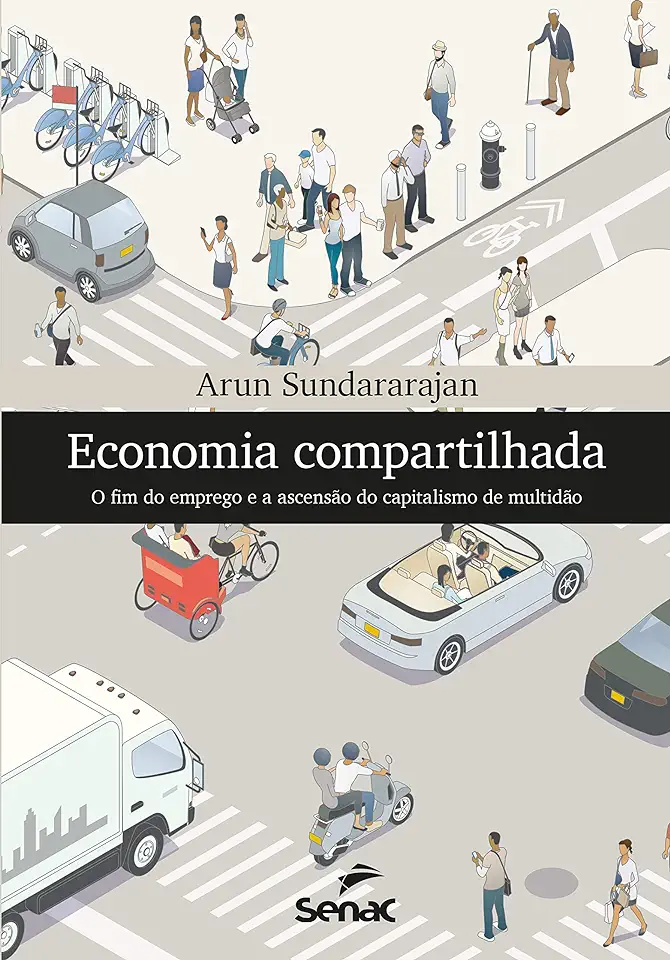
The Sharing Economy - Sundararajan, Arun
The Sharing Economy: A Revolutionary New Way to Live
In "The Sharing Economy," Arun Sundararajan argues that we are on the cusp of a new economic revolution, one that is based on sharing rather than ownership. This new economy is being driven by a number of factors, including the rise of the internet, the increasing cost of living, and the growing awareness of the environmental impact of our consumption habits.
Sundararajan defines the sharing economy as "an economic model in which individuals share access to goods and services rather than owning them outright." This can take many different forms, from ride-sharing services like Uber and Lyft to home-sharing platforms like Airbnb.
The sharing economy has a number of advantages over the traditional economy. For consumers, it can save money, provide access to a wider range of goods and services, and reduce the environmental impact of their consumption. For businesses, it can reduce costs, increase efficiency, and create new opportunities for innovation.
Sundararajan argues that the sharing economy is not just a fad, but a fundamental shift in the way we live and work. He predicts that the sharing economy will continue to grow in the years to come, and that it will have a profound impact on our society and economy.
The Rise of the Sharing Economy
The sharing economy has been growing rapidly in recent years. In 2013, the global sharing economy was estimated to be worth $15 billion. By 2025, it is projected to be worth $335 billion.
This growth is being driven by a number of factors, including:
- The rise of the internet: The internet has made it easier than ever for people to connect with each other and share resources.
- The increasing cost of living: The cost of living has been rising steadily for years, making it difficult for people to afford to own everything they need.
- The growing awareness of the environmental impact of our consumption habits: People are becoming increasingly aware of the environmental impact of their consumption habits, and they are looking for ways to reduce their impact.
The Benefits of the Sharing Economy
The sharing economy has a number of benefits for both consumers and businesses.
For consumers, the sharing economy can:
- Save money: Sharing goods and services can save consumers money compared to buying them outright. For example, a ride-sharing service like Uber can be cheaper than taking a taxi or renting a car.
- Provide access to a wider range of goods and services: The sharing economy can provide consumers with access to a wider range of goods and services than they would be able to afford to own outright. For example, a home-sharing platform like Airbnb can allow people to stay in unique and interesting places that they would not be able to afford to buy.
- Reduce the environmental impact of their consumption: Sharing goods and services can reduce the environmental impact of consumption by reducing the need for new products to be produced. For example, a car-sharing service like Zipcar can reduce the number of cars on the road, which can reduce pollution and traffic congestion.
For businesses, the sharing economy can:
- Reduce costs: Sharing goods and services can reduce costs for businesses by eliminating the need to purchase and maintain their own assets. For example, a company that uses a cloud computing service like Amazon Web Services can save money on hardware and software costs.
- Increase efficiency: Sharing goods and services can increase efficiency for businesses by allowing them to use resources more effectively. For example, a company that uses a co-working space can save money on office space and utilities.
- Create new opportunities for innovation: The sharing economy can create new opportunities for innovation by allowing businesses to develop new products and services that meet the needs of the sharing economy. For example, a company that develops a new ride-sharing app could create a new way for people to get around.
The Future of the Sharing Economy
Sundararajan argues that the sharing economy is not just a fad, but a fundamental shift in the way we live and work. He predicts that the sharing economy will continue to grow in the years to come, and that it will have a profound impact on our society and economy.
The sharing economy has the potential to make our lives easier, more affordable, and more sustainable. It is a new way of living that is worth exploring.
Conclusion
"The Sharing Economy" is a must-read for anyone who wants to understand the future of our economy. Sundararajan provides a clear and concise overview of the sharing economy, and he makes a compelling case for why it is here to stay. This book will change the way you think about the way we live and work.